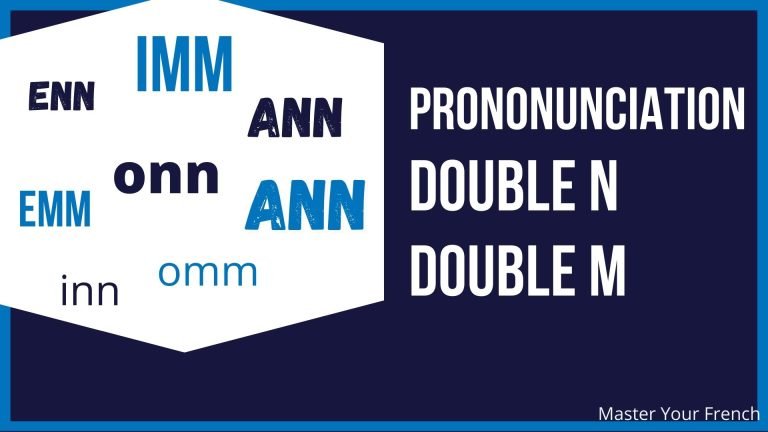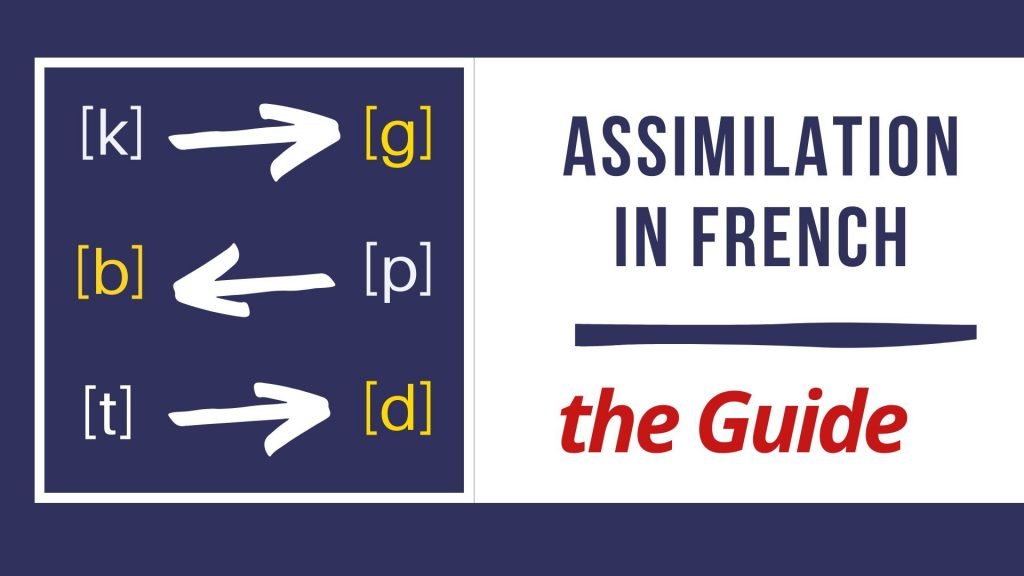Exploring N and M consonant pronunciation nuances
Updated: 16 December, 2023 by Mylene in Pronunciation Lessons ▪

The N and M consonants sound different depending on where they are in a word. You can pronounce a nasal consonant, or a nasal vowel. Moreover, when these consonants are doubled, you will have to be vigilant to find the correct pronunciation. We are going to study the pronunciation of the nasal consonants n and m in these different contexts:
- vowel + N/M + vowel
- vowel + N/M + consonant (other than N/M)
- N/M at the end of a word
- consonant + N/m + vowel
- words with NN and MM
- word beginning with ENN
- word beginning with EMM
- adjective beginning with IMM
- adverb ending with EMMENT
To fully master the pronunciation of nasal consonants and many other aspects of the French language, study and practice are essential. Whether it’s listening to native speakers, engaging in conversations with French speakers, or taking French pronunciation lessons, a dedicated approach to studying pronunciation will help improve your fluency in the language.
vowel + n/m + vowel
No nasal vowel should be pronounced.
- banane is pronounced [banan]: banana
- piano is pronounced [pjano]: piano
- une is pronounced [yn]: one
- honorer is pronounced [ɔnɔʁe]: honor
- énervé is pronounced [enɛʁve]: irritated
Exception:
- enorgueillir is pronounced [ɑ̃nɔgœjiʁ]: to be proud
- s’enivrer is pronounced [sɑ̃nivʁe]: to get drunk
It is rare to find such exceptions.
vowel + n/m + consonant (other than n/m)
You have to pronounce a nasal vowel.
- banque is pronounced [bɑ̃k]: bank
- plinthe is pronounced [plɛ̃t]: plinth
- honte is pronounced [ɔ̃t]: shame
- entrer is pronounced [ɑ̃tʁe]: enter
Exception:
bonhomme is pronounced [bɔnɔm]
N/M at the end of a word
You have to pronounce a nasal vowel.
- ban is pronounced [bɑ̃]: ban
- lapin is pronounced [lapɛ̃]: rabbit
- son is pronounced [sɔ̃]: sound
- en is pronounced [ɑ̃]: in
Here are some words ending in EN and UM and do not contain a nasal vowel:
- abdomen is pronounced [abdomɛn]: abdomen
- lichen is pronounced [likɛn]: lichen
- maximum is pronounced [maksimɔm]: maximum
- forum is pronounced [fɔʁɔm]: forum
consonant + N/m + vowel
We pronounce all the letters, but it’s rare.
- pneu is pronounced [pnø]: tire
- amnésie is pronounced [amnezi]: amnesia
Those words contain the consonant [n]:
- automne is pronounced [otɔn]: autumn
- condamner is pronounced [kɔ̃dane]: to condemn
So, whether you’re a beginner or an advanced French learner, don’t hesitate to explore further the vast field of French pronunciation, which encompasses topics such as recognizing these phonetic consonants in writing or also consonant doubling in French phonetic. These aspects of French phonetic will allow you to perfect your articulation and oral comprehension, bringing you closer to authentic and fluent communication when you speak French.
words with NN and MM
In the following combinations, no nasal vowel is pronounced:
- ann, amm, onn, omm,
- enn, emm (within a word)
- imm (if not in adjective ending not able)
- emment (adverb)
For examples:
- Annecy is pronounced [ansi]: Annecy
- pantalon is pronounced [pɑ̃talɔ̃]: pants
- grammaire is pronounced [gʁamɛʁ]: grammar
- immeuble is pronounced [imœbl]: building
- innée is pronounced [ine]: innate
- personne is pronounced [pɛʁsɔn]: personne
- gomme is pronounced [gɔm]: gomme
- chienne is pronounced [ʃjɛn]: female dog
- gemme is pronounced [ʒɛm]: gemme
Word beginning with ENN
You will pronounce a nasal vowel:
- ennui se prononce [ɑ̃nɥi]
- enneigé se prononce [ɑ̃neʒe]
Exception
- ennemi is pronounced [ɛnmi]
word beginning with EMM
Generally you will have to pronounce a nasal vowel:
- emmener is pronounced [ɑ̃mne]: take away
- emménager is pronounced [ɑ̃menaʒe]: to move in
Adjective beginning with IMM
Some compounds formed with im- are pronounced with a nasal. Adjectives starting with -IMM and ending with -ABLE begin with the nasal vowel [ɛ̃]:
- immangeable is pronounced [ɛ̃mɑ̃ʒabl]: Inedible
- immettable is pronounced [ɛ̃metabl]: not wearable
adverb ending with EMMENT
Adverbs ending in -emment are pronounced [amɑ̃]. This concerns about 50 adverbs, of which only about twenty are common.
- fréquemment is pronounced [fʁekamɑ̃]: frequently
- évidemment is pronounced [evidamɑ̃]: obviously
Towards fluent pronunciation
Pronouncing the nasal consonants N and M in French can be a tricky part of learning the language. As we have seen, the pronounced sounds can vary depending on the position of N and M in a word. There are also specific exceptions and rules to consider, especially when dealing with double consonants. However, rather than considering these nuances as obstacles, it is important to perceive them as interesting characteristics of the French language and its richness. By improving your pronunciation, you will be able to communicate more effectively and discover the world of French culture.
Let yourself be inspired by the elegance and musicality of the French language, because learning is not only limited to knowing the rules, but also to feeling and appropriating the beauty of each word spoken. I wish you a great discovery of the universe of French pronunciation.

